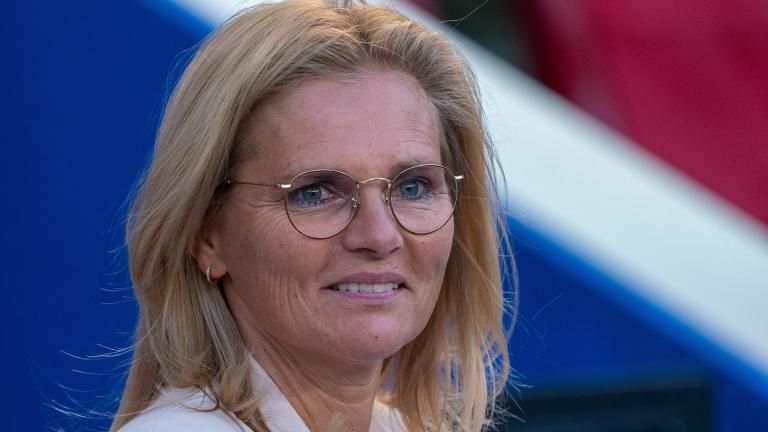
Read more about Sport

In the fiercely competitive arena of international football, becoming a manager is no easy task.
England’s men’s and women’s national teams have had a long list of iconic managers over the years. Some have led them to victory in major tournaments, and others have changed the way the beautiful game is played forever.
Read on for a list of the most iconic football managers in England’s footballing history.
Sven-Göran Eriksson (or ‘Svennis’, as he was nicknamed in his native Sweden) is one of the most iconic football managers in the history of England’s men’s football. He was the first foreign manager of the team, bringing a new perspective and level of professionalism to the role.
His time as manager is beloved for a period of consistency for the national team, with England consistently hitting the knockout stages of major international tournaments. He managed some of the most iconic players in English football history, including Michael Owen, David Beckham and Steven Gerrard.
Some of his most notable achievements include leading England to the quarterfinals of the World Cup in 2002 and 2006 and taking them to the quarterfinals of Euro 2004. Sven-Göran Eriksson passed away on 26th August 2024, leaving behind a legacy in football that will be remembered forever.
Alf Ramsey is perhaps the most memorable manager in England’s history – and for good reason. He began his career in football playing for a range of teams, including Southampton, Tottenham Hotspur and the England national team he later managed.
He is best remembered for his time as manager of England’s men’s national team, leading them to their first and only World Cup victory in 1966. He achieved this victory by implementing tactical innovations and building a synergised, disciplined team.
The England women’s national team has had several managers across the years, but Sarina Wiegman is proving to be one of the most iconic managers. She led England to win the Women’s Euro 2022, standing as the first major trophy for the Lionesses.
With new levels of tactical arrangement and team synergy, Wiegman then led the team to reach the final of the 2023 Women’s World Cup, where England narrowly lost to Spain. This marked the first time in history that England’s women’s team reached the World Cup final.
Wiegman and her team bounced back quickly though, reaching the final of Euro 2025 in Switzerland. It was a dramatic tournament, full of nail-biting moments for England. Facing Spain once again, the Lionesses won on penalties, securing back-to-back Euro titles and becoming the first senior England team to win a major title on foreign soil.
Terry Venables managed the England men’s team during the exciting period of 1994-1996. He is best known for his ability to be flexible, changing tactics to suit the team and bringing out the best in each player.
He led the team to the semifinals of Euro 1996, 30 years after the team’s only World Cup victory. Although the team fell short in the semifinals, Terry Venables infused the team with a sense of pride and unity that electrified English football in the years that followed.

When he became manager in 2016, Gareth Southgate had a tough task on his hands – invigorating a team that had been struggling with the weight of past tournament failures.
Under his leadership, England reached the semifinals of the 2018 World Cup, which marked the best performance of the team since 1990. He also led them to the finals of the European Championship in 2021 and 2024. Although England came up short on both occasions, this was the closest the team has gotten to a win in many years.
Southgate’s success can be ascribed to his patience and effective management, especially amidst the pressure of intense media scrutiny. He also emphasised youth talent, allowing many young English players the chance to shine in big tournaments.
In the history of the England women’s team, it was during the 1998-2013 period that things began to change. Hope Powell added a new level of professionalism to the team, helping to inspire female players across England and raising the team to new levels.
In terms of tournament success, Powell managed England as they qualified for two World Cups (2007, 2011) and had them consistently playing in the knockout stages of the tournaments. In 2009, she led England to the final of the Women’s Euros, where they finished as runners-up to Germany. This led to a new enthusiasm for women’s football, allowing the team to reach the heights of the present day.
No list of the iconic managers would be complete without mentioning Sir Bobby Robson. First appointed in 1982, Robson led England through two World Cups during a turbulent time in the United Kingdom.
His most notable achievement was the team’s semifinal run in Italy in 1990. The World Cup campaign united the nation, and while they came up short against West Germany, Robson’s connection with both fans and players will always be remembered and his influence on English football will last forever.